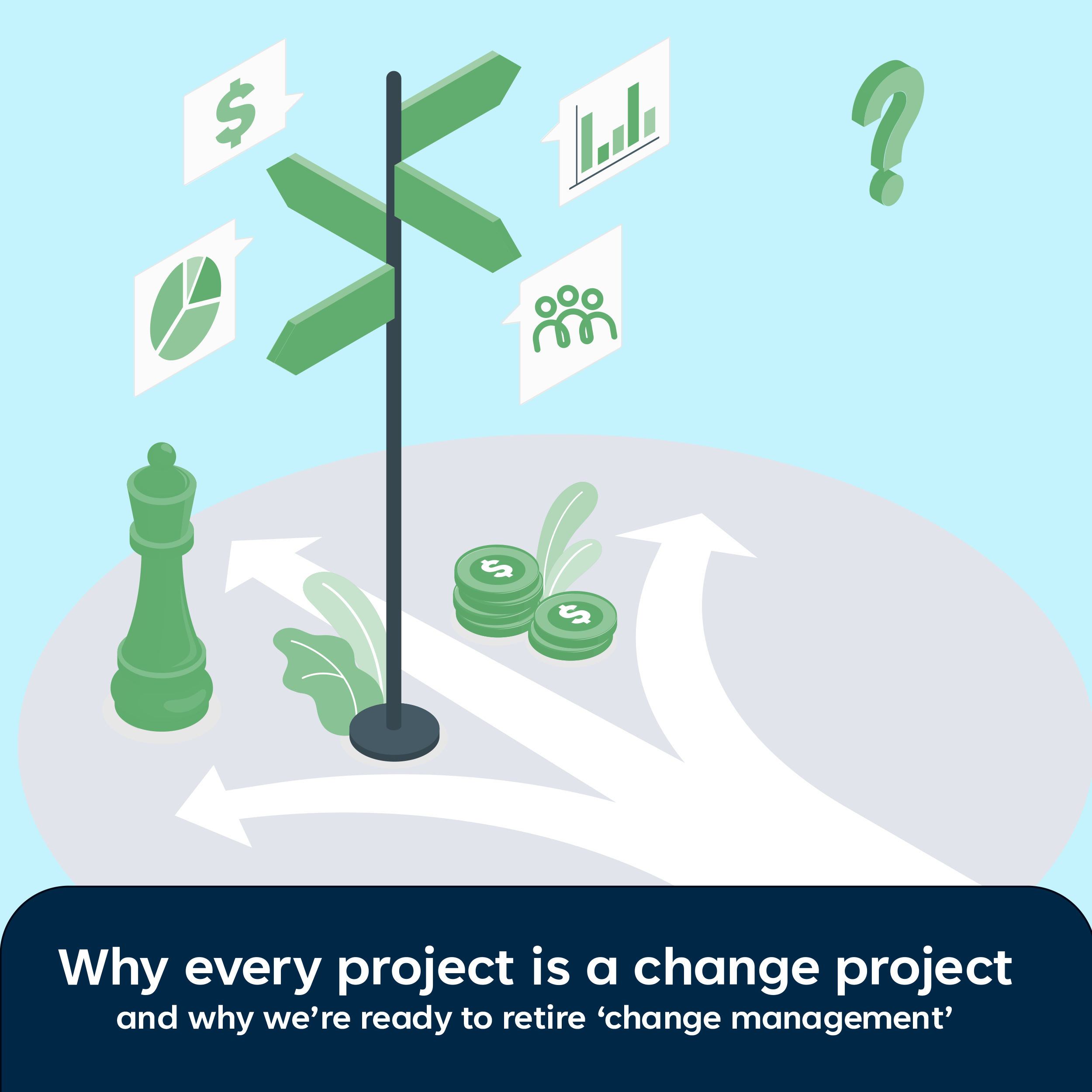Why every project is a change project – and why we’re ready to retire ‘change management’

Today at Right Lane Consulting, we held our monthly knowledge-working lunch. A space where our team shares frameworks, reflections and project experiences. This month, the conversation turned to change: what it means, what works, what doesn’t, and how our view of it has evolved. What once sat as a distinct discipline has become something much more foundational to the way we work.
‘Change management’ is a term that has been used so often it can feel stale, even redundant.
But the reality is, every project we work on as consultants is, at its core, about change. Whether we’re helping an organisation design a new operating model, implement a strategy, streamline a process, or adopt a new technology, we’re supporting people to do things differently — ideally, better — and always in service of what’s best for the organisation and the communities it serves.
Recently, we were completing a government panel application that asked us to report how many ‘change management’ projects we had delivered. We paused. How do we count that? By our definition, every single project involves change — big or small, structural or behavioural, planned or emergent. If we’re honest, the better question might have been: have we ever delivered a project that didn’t involve change? Probably not.
That’s because the reason we’re brought in is rarely because things are stable. If it were business as usual, we wouldn’t be needed. Our clients are navigating uncertainty, complexity, and transformation, often simultaneously, and they rely on us to make that journey make sense.
The principles of change
So while we might not always label it ‘change management,’ the principles underpin every project we deliver: engaging early and often, surfacing concerns, co-designing with stakeholders, and anticipating the unintended consequences of decisions. We listen carefully. We communicate with clarity. We adapt our language and approach to reflect the meaning that different terms hold for different people.
So maybe it’s time to retire ‘change management’ as a standalone discipline. Not because it’s no longer relevant, but because it’s simply part of how we do good consulting. It’s not a separate phase. It is the work.
If you need some help with a change project, get in touch today.